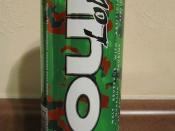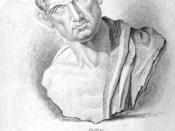Since the beginning of human civilization, people have tried to describe the way the world works, some fundamental truths that can explain why things are as they are. Many ancient worldviews have been suggested, such as Parmenides' which says that change is illusory or the Pythagoreans' numerical perfection. However, one view that persisted well into the middle ages was Aristotle's, whose empirical descriptions provided the conceptual framework for much of the later scientific development. Many of Aristotle's basic concepts were adopted or modified by various groups in order to support their own beliefs.
One of these fundamental concepts is the notion of change. Parmenides claimed that all change is illusory. He reasoned that if something is lacking a property, then changes to acquire that property, then the property has come from nothing. But also according to Parmenides, being cannot come from non-being, a view with which Aristotle agreed.
Therefore Parmenides concluded that, there is no real change in the world and human observation is inherently inaccurate. In order to circumvent this problem, Aristotle claimed there was something other than being and non-being called potential being. So anything that is not yet in existence but may yet come to be has potential being. For example a cow is not yet a leather jacket, but it has the potential to become one, this is why we can make leather jackets from cows. In addition to this concept of potential being, Aristotle also claimed that all things are made of the same primordial property-less matter. Distinctions between different objects come from their essence, which is imbedded in the matter of which these objects are composed. This essence determines things like colour, warmth or hardness. The essence and the matter are not separate, but both are there in all things, no...


